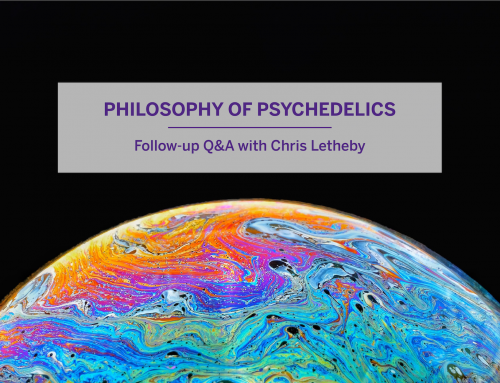By Dan Hicks
[This is the first of a series of posts on science and the public interest, written by members of the Rotman Institute’s Science, Policy, and Philosophy Working Group.]
In the wake of Thomas Kuhn’s The Structure of Scientific Revolutions, contemporary philosophers of science generally recognize that values play a role in science. But what kind of role? Are there special “scientific values”? If so, how do they relate to other kinds of values?
Several philosophers have developed a notion of epistemic values. These are usually defined as things that are “truth-promoting,” that is, that indicate that our theories are true. A standard list, going back to Kuhn, includes accuracy, explanatory power, and internal and external consistency. (Internal consistency means the theory is consistent by itself; external consistency means it agrees with other accepted theories.) Other values, such as a commitment to feminism or environmentalism or a particular religion, are non-epistemic; the fact that a theory agrees with feminist values doesn’t seem to be an indication that it’s true (or false). Daniel Steel at Michigan State University suggests that, the presence of non-epistemic values in science isn’t worrisome if, and only if, they don’t interfere with the pursuit of truth.
One problem with this approach is that science has other goals besides truth. Lead paint is a serious problem in many old apartment buildings in impoverished communities. To help identify lead paint, chemists have developed fast, inexpensive, and easy-to-use test kits. But these kits aren’t as accurate and precise as slower, more expensive, and more rigorous tests. It seems we would have to say that in this case the non-epistemic values involved in preventing lead poisoning are interfering with the pursuit of truth. On Steel’s approach, that’s a problem. But, I think, for these specific purposes it’s perfectly reasonable to sacrifice truth, at least to an extent. Truth is important, but it’s not always the most important thing. At least sometimes, other things — such as health — may take priority.
The approach that I’ve developed in my research examines various kinds of activities and the various kinds of goods or aims associated with them. Science, on my approach, isn’t primarily a set of theories, but instead a complex social activity. To stress this, I often use the terms “scientific inquiry” or “scientific research,” rather than just “science.” Science is done for the sake of producing various kinds of goods — you can think of a “good” as anything that’s good to have or do. True scientific theories are one important kind of good. But another kind of good — which I think is just as important as true scientific theories — is reliable and useful technology. In the case of the inexpensive lead test kits, we’ve sacrificed the pursuit of true scientific theories to an extent, but for the sake of more useful technology. This goes a long way towards explaining why the sacrifice of truth seems to be acceptable in this case. Steel’s mistake is to think that truth is the only good associated with scientific research.
Other activities have their own goods or aims: medicine aims at bodily health; cooking aims at preparing delicious and nourishing food; and film criticism aims at deepening our understanding of works of art. All of these things are intrinsic goods, that is, they are valuable for their own sake. We would engage in these activities even if we didn’t gain anything else from them. Many of these goods are also instrumental goods, that is, they are valuable because they help us achieve or produce other goods. For example, nourishing food keeps us healthy (or recover our health when we’re sick), and in turn we can’t do film criticism without at least a certain degree of health. Generally and for the most part, the goods of science — knowledge and technology — are both intrinsic and instrumental. Some areas of scientific knowledge don’t seem to be instrumental at all — cosmology is a good example — but those areas are exceptional, and often they have at least loose connections to some instrumental goods.
Other goods, like money and power, are purely instrumental: they are good to have, but only for the sake of other things. On its own, money is nothing more than bits of paper, plastic, or metal, or even numbers in a database; it’s valuable only because and insofar as it can be used to obtain other things.
Now, how do these various activities and goods relate to each other? One especially happy situation is where the intrinsic goods of several different activities come together. Biomedical research is an excellent example, at least in the ideal: we pursue scientific knowledge, technology, and health together, each for its own sake and for the sake of promoting the other two goods.
Things also go well when we use purely instrumental goods for the sake of producing intrinsic goods. For example, there’s nothing wrong per se with acquiring wealth for the sake of pursuing new knowledge and technology, so long as that’s what’s actually happening. However, it’s very easy for this situation to flip, so that we pursue new knowledge for the sake of acquiring wealth. We may even pursue new knowledge only for the sake of wealth. And this is a serious mistake, in two ways: we’re treating knowledge, an intrinsic good, as though it were purely instrumental; and we’re treating money, a purely instrumental good, as though it were an intrinsic good.





